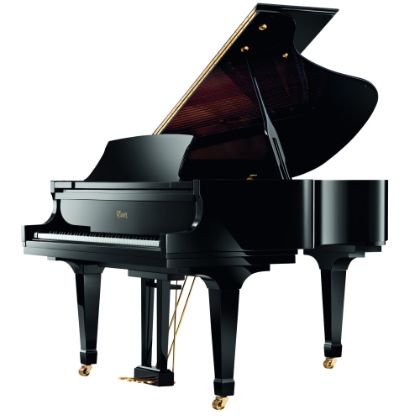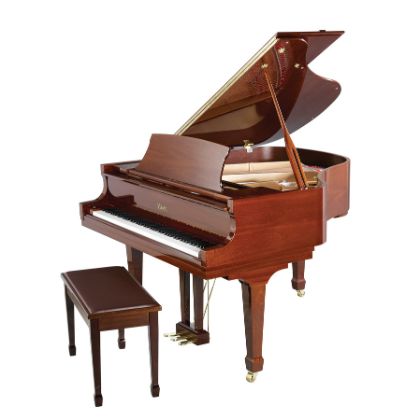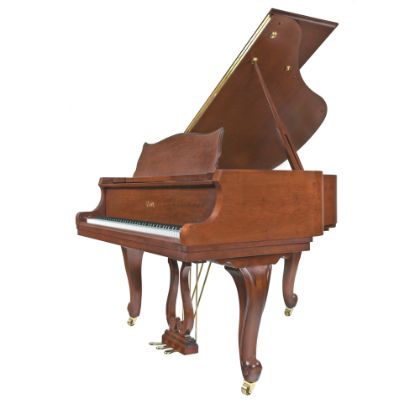Essex Grand Piano
The entry into the family of STEINWAY–designed grands, Essex grand pianos are manufactured globally and incorporates STEINWAY & SONS' latest design specifications and engineering standards, as well as the Steinway commitment to excellence. Every Essex instrument is inspected by a team of highly experiences STEINWAY & SONS trained technicians before it leaves the factory.
Designed by STEINWAY & SONS in collaboration with renowned furniture designer William Faber, the Essex grand piano has been created as a tribute to the idea that beautiful piano styles and finishes should be possible in every price range.
explore the Essex Grand
The special case of the grand piano, called the rim, reveals the design legacy of STEINWAY & SONS behind the Essex. The rim contributes to the stability of the piano, offering support for the soundboard. The Essex grand piano rim, both outer and inner, is laminated walnut.
The wide-tail design featured on all Essex grands is a special innovation by STEINWAY & SONS that creates 6% more surface area in the soundboard. This enriches the sound, giving the pianist the impression of playing on a larger instrument. The larger soundboard area also allows for better placement of the bass bridge — which yields more volume, greater tone, and a bass that sings.
Like all pianos designed by STEINWAY & SONS, the Essex contains a soundboard of solid, premium grade, straight-grained spruce chosen for its superb acoustic qualities. It also features a special tapered profile that is thicker in the treble and thinner in the bass, enabling freer vibration and better tonal volume.
Designed by Steinway & Sons, the plate is cast from gray iron and over engineered to provide strength to support 20 tons of string tension. Long-fiber cast iron creates a very dense plate, which does not absorb energy and yields a fuller tone.
Essex grand hammers are specified by STEINWAY and made by Imadegawa in Japan using German–made hammer felt and hornbeam moldings. Based on the exclusive designs of STEINWAY & SONS, the Essex action is made of wood (not plastic) and is characterized by a faster repetition, better stability, and heightened responsivenes — allowing the musician to play with maximum expression and control.
The Model That Is Right For You
-

EGP-173C Classic Grand
The EGP-173C or “Classic Grand” is the style by which all others are judged. This Classic Sheraton design has withstood the test of time for over 100 years since it was first introduced by Steinway & Sons in 1900.
Read More -

EGP-155C Classic Grand
Our smallest grand piano, the EGP-155C is not small when it comes to volume, thanks to Steinway–designed features to maximize the potential of this instrument.
Read More -

EGP-155F French Provincial
Our smallest grand piano, the EGP-155F is not small when it comes to volume, thanks to Steinway–designed features — in an elegant French provincial style — to maximize the potential of this instrument.
Read More